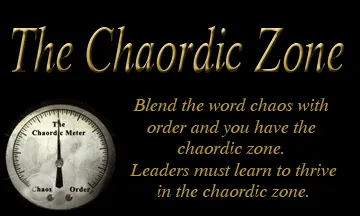Christian Optimism
“Glass half full?” or “Glass half empty?” Which one are you? Does it depend on your mood? Does it depend on your health? Does it depend on your finances? Does it depend on your circumstances? The dual categories aren’t usually helpful because as human beings we often exhibit a wide array of responses to the things around us. Our outlooks are triggered by upbringing, temperament, faith, or other nature and nurture contributions. Most of my life I would classify myself as an idealist and my wife as a realist. Yet a more accurate assessment reveals that I’m more idealistic about some things and more realistic about others and my wife is the same way.
Easter is a season that has been culturally painted in pastels with flowers, eggs, candy, and bunnies. The fact that it is celebrated during the Spring where life is reawakening gives it a generally uplifting texture. It’s a real mood-booster for many. But the true origin of Easter is about Jesus Christ exiting his tomb and visiting with many people before returning to the Father. While the cultural packaging of Easter lifts the mood – is it just another morale boost to help us trudge along in life for a little longer until we get to revival service or harvest season or even Christmas?
Easter is about optimism for sure. But I believe it is about Christian Optimism. In a very real sense the Christian is really both glass half empty AND half full when it comes to our outlook. Allow me to explain.
Romans 5:1-11 describes the Christian faith as restoration with God. However, the Bible’s prognosis of the human being isn’t rosy. It calls us “weak”, “ungodly”, and “sinners”. It tells us that we were accepted by God on the basis of “blood” and “death” – the crucifixion of Christ. To the world, these are not very positive, mood-boosting words. They are the epitome of negativity. We are just days away from Good Friday where Jesus Christ was hung on a cross and breathed his final words, “It is finished.” It is impossible to separate Easter from the rest of Holy Week. And the passion of Christ is about judgment against sin and wickedness.
So how does the Christian gospel view humanity? In largely negative terms, “There is none righteous, not even one (Romans 3:10).” Even the image of God in every person is marred. Let us admit that the glass is half empty when it comes to the human condition. And when the world hears the truth about why Jesus died it recoils against “doom and gloom.” Can’t we just leave that part out? We cannot – for we didn’t make the diagnosis.
While Jesus was finished shedding his blood for sins on the cross he was anything but done with restoring and setting things aright. And so “up from the grave he arose with a mighty triumph over his foes!” We sing. And here’s the optimism (or a better word, I think, “hope”): that what Jesus did in death and resurrection completely altered the lives of those who belong to him. When we place our trust in the risen Lord we have no other way of seeing the world than through the hope his resurrection achieved.
” We rejoice in our sufferings, knowing that suffering produces endurance, and endurance produces character, and character produces hope, and hope does not put us to shame, because God’s love has been poured into our hearts through the Holy Spirit who has been given to us (Romans 5:3-5).”
That’s Christian optimism in print! We rejoice in our suffering because it has a design to it – to produce a certain affect within our lives. It produces endurance, character (Christ-like character at that), and it produces HOPE. Hope is that longing to be as Christ now is – risen without a decaying and broken body. Not that we are insensitive or blind to real pain and death. We accept that for many people in the world COVID-19 has caused anxiety and grief. We don’t need to put a positive spin on that. But Christian optimism sees that all disease and even death is a small and passing reality. It is really tragic AND really temporary in the scope of eternity.
And here’s how Christian optimism (Hope) proves to be more durable than mere optimism: “God’s love has been poured into our hearts through the Holy Spirit who has been given to us!” To the true child of God, Easter isn’t simply a historic tradition of remembrance. Resurrection is the life of a Christian – it’s our personal story. God himself now directly pours (not trickles) his love into our hearts through the person of the Holy Spirit. Resurrection has already begun within us. “God, being rich in mercy, because of the great love with which he loved us, even when we were dead in our trespasses, made us alive together with Christ (Eph. 2:4-5).” This we know because the Holy Spirit is within us.
While most of the people I know are fairing the pandemic without a lot of difficulty (yet), this isn’t the case for everyone. Whether this suffering has hit home or is as distant as a news feed, I can say with certainty to the medical community, to our leaders, and to those who may venture to read this blog post – you can exchange flimsy optimism for un-disappointed hope. Positive thinking can be a good thing in and of itself but Christian optimism sees past this current crisis or any personal crisis and into eternity with bodies and souls that are made perfect by God. This is the hope of Easter! This is why we have Christian optimism! We can lament the sin and godlessness of the current human condition AND express hope for better days. And that hope will not disappoint in the end.
